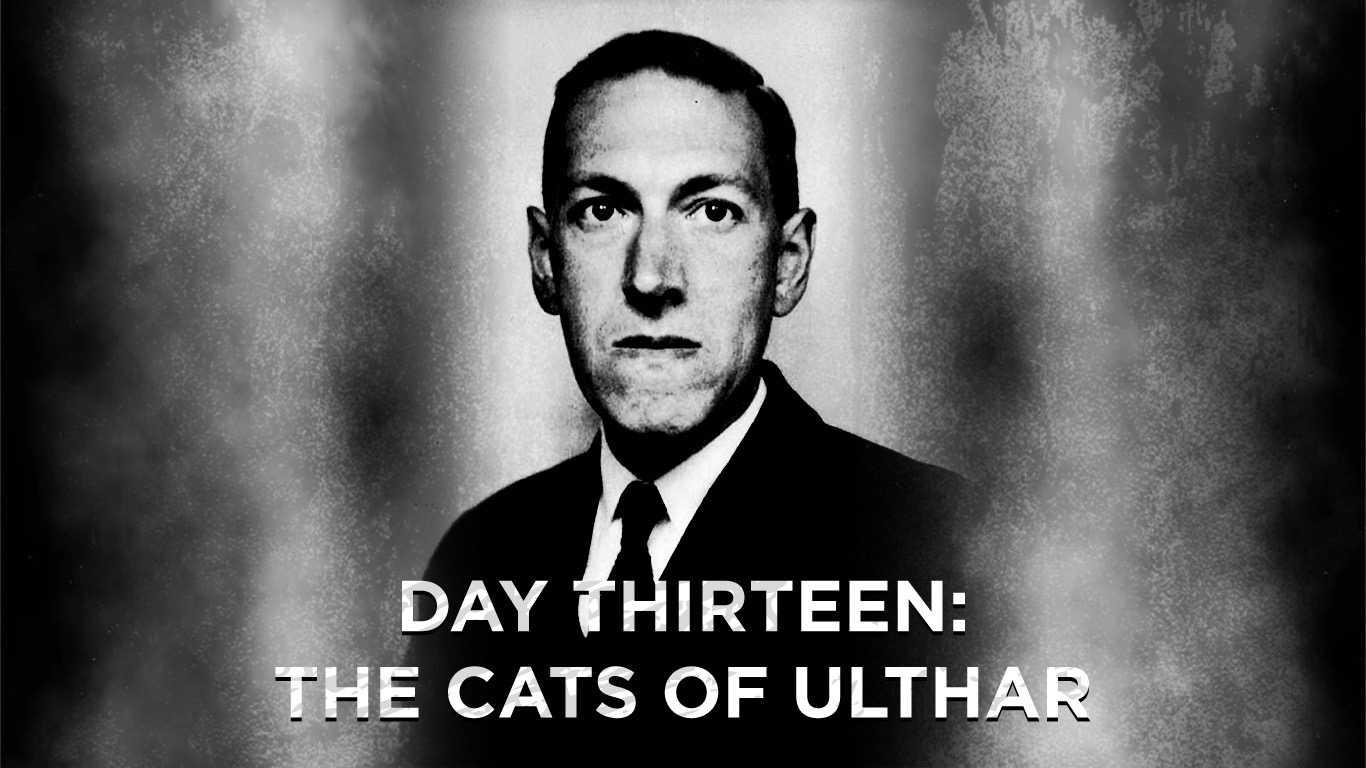The Cats of Ulthar

One thing I have gleaned from my renewed custom of indulging in a daily sojourn through the works of the master of cosmic horror, H.P. Lovecraft, this October, is the paramount importance of setting. The locus in which I partake of Lovecraft’s macabre imaginings greatly shapes the reception of his foreboding visions. To read Lovecraft’s tales under the benign tyranny of daylight is to strip them of their eldritch power, their whispered horrors blunted by the sun’s indiscriminate glare. But to immerse myself within his pages in the sanctum of my chamber, the windows tightly shuttered, the light faint and flickering? Ah, it is in such gloom that the full dread of his craft seizes me, and my very skin tingles with apprehension. Ideally, I would engage in this ritual amidst a forgotten New England graveyard, candlelight casting trembling shadows upon ancient tombstones.
Another truth I have reawakened to, one buried yet familiar, is Lovecraft’s deft alteration of style. His signature is unmistakable, yet in tales such as “The Cats of Ulthar,” one finds him channeling the ethereal touch of Lord Dunsany. I’ve long known of Lovecraft’s admiration for that Anglo-Irish fantasist, whose mythic narratives laid the foundation for what we now call fantasy. I find myself inexorably drawn to seek out Dunsany’s works again—perhaps The King of Elfland’s Daughter or The Gods of Pegāna—once October’s twilight days wane.
One final note, though tinged with the unsettling resonance of my own introspection. Rudimentary Peni’s Cacophony—an album whose very existence reverberates with a chaotic dissonance—is perhaps their magnum opus, a discomfiting echo of pain, much like the inscrutable torment that plagued the soul of H.P. Lovecraft himself. Yet, amidst the tumult of sound and frenzied lyric, I cannot help but perceive a dark and deliberate tribute within the closing strains of “Kapap Alpha Tau,” a spectral homage, perhaps, to that curious tale, “The Cats of Ulthar.”
And when they had broken down the frail door they found only this: two cleanly picked human skeletons on the earthen floor, and a number of singular beetles crawling in the shadowy corners.
In today’s tale, “The Cats of Ulthar,” an unnamed narrator recounts the strange genesis of the law that forbids the killing of cats in that eerie town. The story unfolds with the introduction of an old cotter and his malevolent wife, whose grim delight lies in the trapping and slaying of any unfortunate feline that strays upon their desolate property. The townsfolk, gripped by a nameless fear, dare not challenge the wicked couple but merely strive to protect their own beloved cats. It is the arrival of a mysterious caravan of wanderers, among them a forlorn orphan named Menes and his cherished black kitten, that sets the stage for the town’s fateful reckoning. When the kitten vanishes, Menes—consumed by sorrow—invokes an arcane and inscrutable power, awakening the sentience of Ulthar’s cats. The travelers depart into the night, and with them, the cats of the town. By morning, the felines return, sated, while the cotter and his wife have disappeared. All that remains of them are bones, gnawed clean. The burgesses, struck by the grim tale, enact the law, forever forbidding the slaughter of cats in Ulthar, lest such unspeakable events recur.